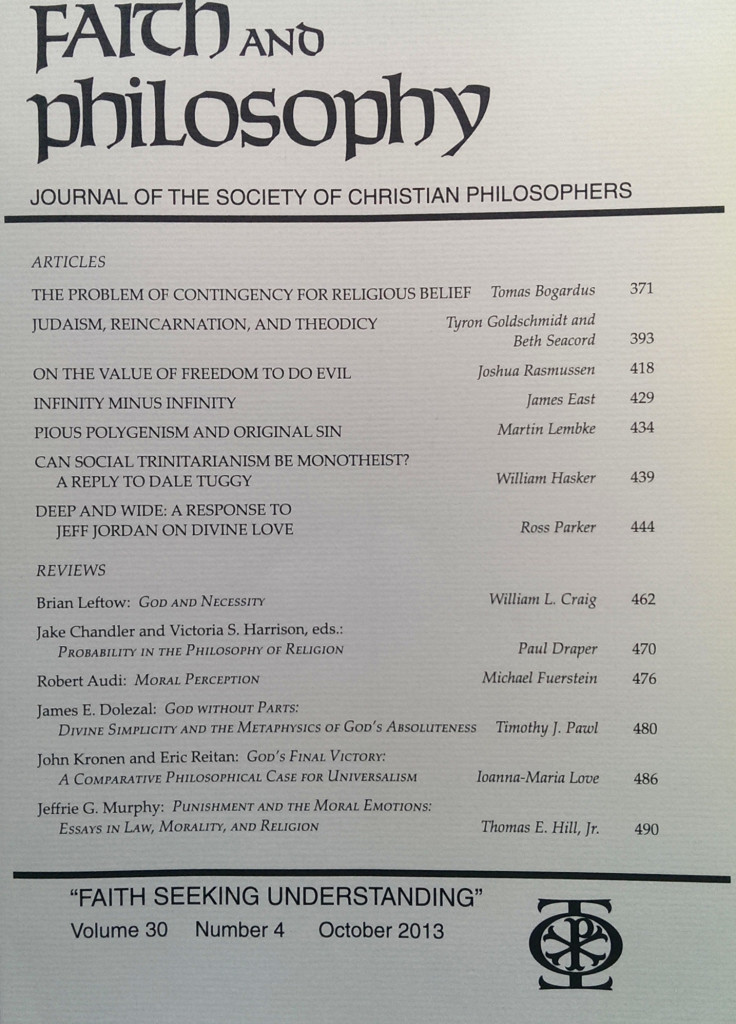 to this piece of mine, in the previous issue.
to this piece of mine, in the previous issue.
Who gets the better of the exchange?
I don’t have more to say right now… but I am reviewing Hasker’s major new book soon for another journal. In brief, he defends a three-self Trinity theory, and believes he can show this to be self-consistently monotheistic. He develops this view, I think, farther than anyone else ever has.
There’s a lot of good stuff in this issue – see especially
- the lead piece by Tomas Bogardus
- Bill Craig’s review of Leftow’s God and Necessity
- Tim Paul’s review of Dolezal’s God without Parts. This is an exemplary review, and includes this gem towards the end:
Part of what one needs to do when resuscitating a maligned doctrine is show that it is, in reality, that very doctrine one is breathing life into. One has to show that it is resurrection and not frakensteinian devilry that one is attempting. (p. 486)
Love that phrase. Sadly, a good many rational reconstructions are just such devilry!
This is an important journal to keep up with, if you want to be up on analytic theology and/or philosophy of religion.

Dale,
I confess that I’m a bit perplexed by Hasker’s response to you. He spends the paper developing an argument meant to show that monotheism can coincide with social Trinitarianism but then he states that he doesn’t think you’ll find it convincing (although some Latin Trinitarians might for whatever that’s worth). He’s confident of this because he knows that you’ll reject premise 4 about someone being God if they’re worshiped. After all, you’ll just reject it on the grounds that there’s a way to be worshiped that doesn’t entail being God viz. God decrees that you’re worthy of it. It’s simple and coherent, one might even say common sense, and it certainly seems biblical (cf. the countless passages about Jesus being exalted to the status that he enjoys after the resurrection). So what’s Hasker to do with this? Does he show how it’s not so logical after all or that the bible gives other reasons for worshiping Jesus that don’t involve his exaltation (eg he has a divine nature, he is eternal, he created the universe)? No, he just expresses bewilderment that anyone could be a Socinian unitarian in view of some texts which he lists which (he thinks) teach that Jesus is oh so much more. And then… curtains close. The end. Did I miss something?
Comments are closed.